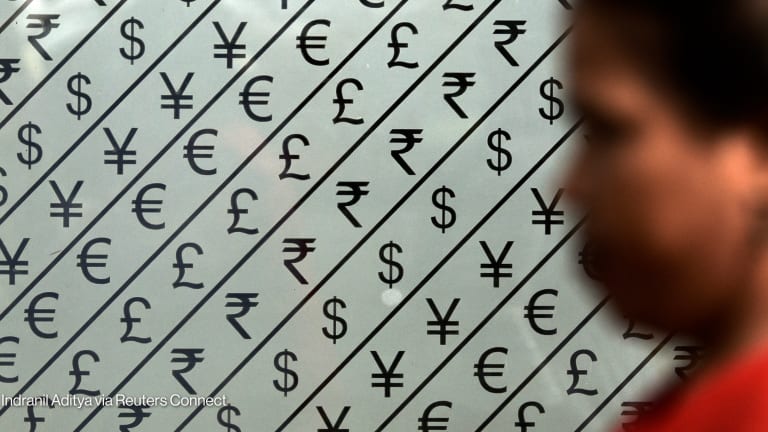Interactive: IDB project pipeline May-August 2018
The Inter-American Development Bank pipeline expanded quickly, from 66 projects in May to 94 projects in August. Devex takes a look.
Sixty-one new projects worth nearly $6.2 billion entered the Inter-American Development Bank’s pipeline between May-August 2018. This data details possible upcoming projects yet to be approved by the bank’s board of directors. The IDB pipeline expanded quickly over the second-third of this year, from 66 projects in May to 94 projects in August. Funding hit a peak of $10.7 billion in July as it went from $6.7 billion in May to $10.1 billion in August. July also marked the month where the most money left the pipeline, totaling $1.8 billion of the $2 billion that exited over the four months analyzed. From May to August, 16 projects exited the pipeline, meaning they have either been approved by the board of directors or been canceled. Devex analysis shows that 14 of the 16 were approved, and should soon be available as opportunities for implementers and contractors. These projects represent just over $2 billion in projected funding. The countries allocated the most pipeline funding by IDB between May-August include Mexico, Brazil, and Argentina, some of the region’s largest economies. There were also four multicountry projects that entered the pipeline, including one in August worth $750 million for the Northern Triangle countries of El Salvador, Guatemala, and Honduras to fund the financing and risk mitigation program for strategic investments. IDB notes that El Salvador, Guatemala, and Honduras have failed to demonstrate sufficient growth to pull people out of poverty — in a region where more than half of the population lives below the poverty line. The region has struggled with the proliferation of violent crime and gang and drug-related violence, along with experiencing the adverse impacts of climate change. Honduras is the country most impacted by climate-related events in the world, based on economic loss and number of deaths. The financing and risk mitigation program is aimed at mobilizing public and private resources to increase available financing for infrastructure and strategic sector projects. IDB is a partner in the Alliance for Prosperity, an agreement made with the United States in 2014 in which the Northern Triangle governments agreed to couple their own funds with assistance from the U.S. to increase investment in the region and improve governance and access to public services. The program aims to reduce the drivers of migration by improving life in countries of origin. Of projects exiting the pipeline between May-August, one of the largest was $600 million for a program in Colombia that entered in June and exited in July. The public sector management project, the second in a series, was aimed at deepening fiscal reform in the country by increasing tax collection, improving public spending management, identifying and reducing fiscal risks, and improving management of debt. Colombia’s growth has been slowing as the new government of President Iván Duque Márquez deals with skyrocketing coca production, an influx of refugees and migrants fleeing economic collapse in neighboring Venezuela, and implementing the peace deal aimed at ending the country’s decades-long war with guerilla factions. Other projects exiting between May-August include $600 million to Mexico for a program to strengthen urban development and land use management reform, and $350 million for El Salvador for fiscal strengthening for inclusive growth. The most funded sector in the IDB pipeline is public sector management, which has 13 projects totaling $2.4 billion. Nearly half of this sector’s funding, $1.2 billion, is allocated to projects in Mexico focused on strengthening fiscal, financial, and investment management capabilities of subnational governments and public services. Transport is the second most funded sector but only has about half as much as public sector management, at $1.3 billion. Although the region faces several environmental related challenges from climate change and natural disasters, the environment was one of the least-funded sectors in the second quarter, with only $50 million in funding for three projects in Paraguay and Peru. All these details and projects can be explored in our interactive visualization of IDB’s pipeline.
Sixty-one new projects worth nearly $6.2 billion entered the Inter-American Development Bank’s pipeline between May-August 2018.
This data details possible upcoming projects yet to be approved by the bank’s board of directors. The IDB pipeline expanded quickly over the second-third of this year, from 66 projects in May to 94 projects in August. Funding hit a peak of $10.7 billion in July as it went from $6.7 billion in May to $10.1 billion in August.
July also marked the month where the most money left the pipeline, totaling $1.8 billion of the $2 billion that exited over the four months analyzed.
This story is forDevex Promembers
Unlock this story now with a 15-day free trial of Devex Pro.
With a Devex Pro subscription you'll get access to deeper analysis and exclusive insights from our reporters and analysts.
Start my free trialRequest a group subscription Printing articles to share with others is a breach of our terms and conditions and copyright policy. Please use the sharing options on the left side of the article. Devex Pro members may share up to 10 articles per month using the Pro share tool ( ).
Teresa Welsh is a Senior Reporter at Devex. She has reported from more than 10 countries and is currently based in Washington, D.C. Her coverage focuses on Latin America; U.S. foreign assistance policy; fragile states; food systems and nutrition; and refugees and migration. Prior to joining Devex, Teresa worked at McClatchy's Washington Bureau and covered foreign affairs for U.S. News and World Report. She was a reporter in Colombia, where she previously lived teaching English. Teresa earned bachelor of arts degrees in journalism and Latin American studies from the University of Wisconsin.
Matthew Wolf works with the Devex Analytics team from Johannesburg in South Africa, helping improve our coverage of and insight into development work and funding around the world. He draws on work experience with Thomson Reuters in Africa, MENA and Latin America, where he helped uncover, pursue and win opportunities with local governments and donor agencies. He is interested in data-driven solutions to development challenges, results-based financing, and ICT4D.









